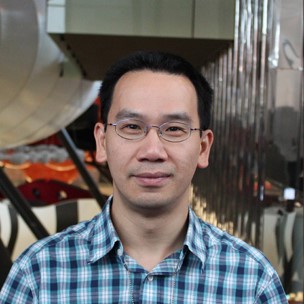Profile
Dr Ping Yip completed his PhD in studying metabotropic glutamate receptors in rodent models of epilepsy under the supervision of Prof Brian Meldrum and Dr Marcus Rattray at the Institute of Psychiatry (King's College London). He spent much of his post-doctoral time studying neuropathic pain and spinal cord injury at King's College London working under Prof Stephen McMahon. Thereafter, he went to work with Prof Adina Michael-Titus and Prof John Priestley at Queen Mary University of London, where he later became a Non-Clinical Lecturer in Neuroscience. His research group focuses on neuroregeneration, neuroplasticity, neuroprotection, neurodegeneration and neuroinflammation in neuroinjury. He has a substantially wide in vitro and in vivo technical knowledge and abilities, which enabled him to publish research articles in the field of pain, motor neurone disease, spinal cord injury, traumatic brain injury and newborns with hypoxic-ischemic encephalopathy.
Publications
Key Publications
Yip P.K., Chapman G.E., Sillito R.R., Ip T.H.R., Akhigbe G., Becker S.C., Price A.W., Michael-Titus A.T., Armstrong J.D., Tremoleda J.L.
Studies on long term behavioural changes in group-housed rat models of brain and spinal cord injury using an automated home cage recording system.
(2019) J. Neurosci. Methods. 1;321:49-63. doi: 10.1016/j.jneumeth.2019.04.005.
Yip P.K., Bowes A.L., Hall J.C.E., Burguillos M.A., Ip T.R., Baskerville T., Liu Z.H., Mohamed M.A.E.K., Getachew F., Lindsay A.D., Najeeb S.U., Popovich P.G., Priestley J.V. & Michael-Titus A.T.
Docosahexaenoic acid reduces microglia phagocytic activity via miR-124 and induces neuroprotection in rodent models of spinal cord contusion injury.
(2019) Hum. Mol. Genet., pii: ddz073. doi: 10.1093/hmg/ddz073.
Ponnusamy V & Yip P.K.
The role of microRNAs in newborn brain development and hypoxic ischaemic encephalopathy.
(2019) Neuropharmacol., doi.org/10.1016/j.neuropharm.2018.11.041.
Shah D.K. Ponnusamy V., Evanson J., Kapellou O., Ekitzidou G., Gupta N., Clarke P., Michael-Titus A.T. & Yip P.K.
Raised plasma neurofilament light protein levels are associated with abnormal MRI outcomes in newborns undergoing therapeutic hypothermia.
(2018) Front. Neurol., https://doi.org/10.3389/fneur.2018.00086
Yip P.K., Carrillo-Jimenez A., King P., Vilalta A., Chau C.C., Egerton A.M., Liu Z.H., Shetty A.J., Tremoleda J.L., Davies M., Deierborg T., Priestley J.V., Brown G.C., Michael-Titus A., Venero J.L. & Burguillos M.A.
Galectin-3 released in response to traumatic brain injury acts as an alarmin orchestrating brain immune response and promoting neurodegeneration.
(2017) Sci. Rep., doi: 10.1038/srep41689.
All Publications
